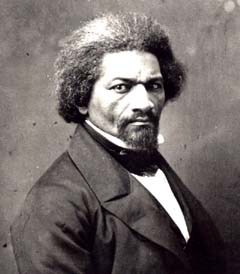 With Frederick Douglass’s 200th birthday approaching, I took a deep dive into his writings to understand how he thought about law. Douglass’s changing thoughts on slavery and the Constitution generally are well known. I wanted to return to his view of the Dred Scott decision. I expect to find Douglass condemning it in 1857, which he did. I was surprised to learn how that decision informed and even haunted Douglass’s thinking for the remainder of his life. It turns out that, as legal historians, we owe him a debt of sorts. Read more here at the the Journal of the Civil War Era’s Muster.
With Frederick Douglass’s 200th birthday approaching, I took a deep dive into his writings to understand how he thought about law. Douglass’s changing thoughts on slavery and the Constitution generally are well known. I wanted to return to his view of the Dred Scott decision. I expect to find Douglass condemning it in 1857, which he did. I was surprised to learn how that decision informed and even haunted Douglass’s thinking for the remainder of his life. It turns out that, as legal historians, we owe him a debt of sorts. Read more here at the the Journal of the Civil War Era’s Muster.
“When Chief Justice Roger Taney denied that free black Americans were citizens of the United States in the 1857 Dred Scott decision, Douglass immediately opposed him. Then, across his lifetime, Douglass never forget how Taney had used the high court to demean African Americans. From the podium and the pen, Douglass made a record that has endured and thus ensured Dred Scottwill be long remembered as the lowest point in the history of race and law.” Read more here.


